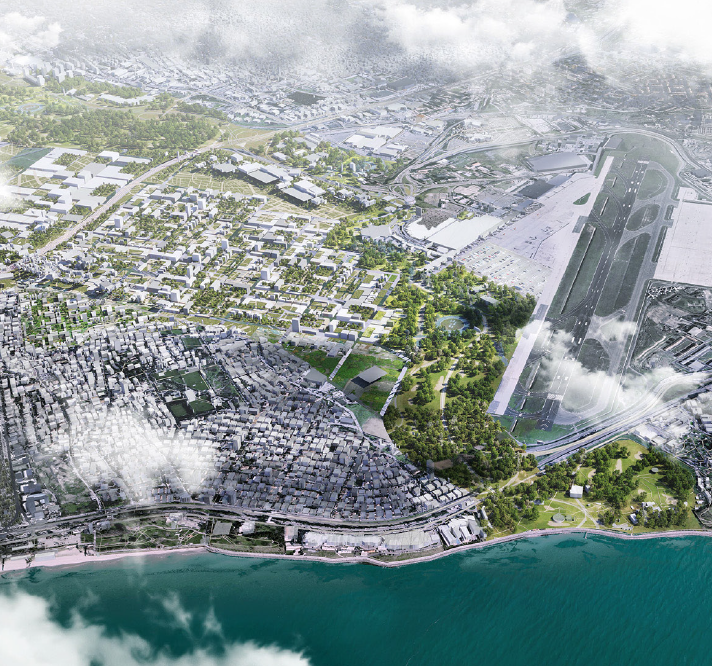Principal Investigator:
Rafi Segal, Associate Professor of Architecture and Urbanism, Architecture Department
Location:
Istanbul, Turkey
The low risk higher ground site of the airport is located along the heavily channelized urban drainage system of the Ayamama river corridor which is increasingly susceptible to dangerous flooding. This urban flood threat is set to be exacerbated by the redevelopment of the area. In the face of this impending intervention, this project sought to develop a highly contextual analysis of the site; analyze changes in the intensity of mean and extreme precipitation in Istanbul; and propose, on their basis, a novel Swap Strategy: a strategic planning and design framework that optimizes spatial relationships between high risk and low risks zones, resilient stormwater management and river restoration, equitable access to large-scale open-space amenities, and opportunities for new urban development and economic growth.
Key outcomes of this project included a thorough historical and scientific analysis of the site and existing watershed; a comprehensive design strategy and methodology that centers adaptive reuse and reclaims the floodplains; and a report that considers how equity, resilience, and cultural heritage can play key roles in the new form of the project.
Principal Investigator:
Rafi Segal, Associate Professor of Architecture and Urbanism, Architecture Department
Location:
Istanbul, Turkey
